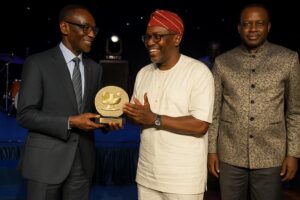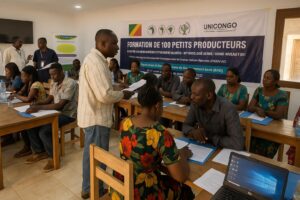Strategic Significance of the Mattei Plan
When Italian Prime Minister Giorgia Meloni unveiled the Mattei Plan in late 2023 she framed it as a “non-predatory” partnership architecture designed to blend energy security with sustainable development across Africa. Rome’s decision to name the Republic of Congo as the first operational laboratory for the start-up component signals both confidence in Brazzaville’s reform trajectory and a pragmatic reading of Central Africa’s latent digital market. Italian diplomats, echoing statements issued by the Farnesina, argue that a proof-of-concept in a mid-sized, politically stable economy offers a controllable risk profile while still providing continental visibility.
Congo’s Digital Ambitions in Continental Context
President Denis Sassou Nguesso has repeatedly described information technology as a pillar of “Congo Vision 2025”. The 2020 inauguration of the 4,000-kilometre fiber-optic backbone linking Pointe-Noire to Brazzaville, followed by data-center investments supported by the Central African Backbone project, has reduced latency and created an enabling environment for cloud-based ventures. According to the Economic Commission for Africa, mobile-money penetration in Congo rose from 28 percent in 2018 to 54 percent in 2022, a trajectory that positions the country as an emergent fintech node between West and Southern Africa. By aligning with Italy, Brazzaville aims to convert these infrastructural gains into a scalable pipeline of early-stage firms spanning agritech, e-health and logistics.
Financing Obstacles and the Promise of Italian Backing
Despite robust connectivity, African founders still confront a persistent capital drought. Partech Africa calculates that roughly eighty-three percent of disclosed venture flows in 2022 accrued to Egypt, Nigeria, South Africa and Kenya, leaving francophone markets largely overlooked. The Mattei facility—expected to mobilise up to one billion euros through the Italian Development Cooperation, Cassa Depositi e Prestiti and private co-investors—intends to narrow this gap by mixing concessional loans, equity windows and guarantee instruments. In Brazzaville, Minister Léon Juste Ibombo welcomed what he called “patient capital coupled with mentorship” during his 22 July meeting with Ambassador Enrico Nunziata. The pilot foresees a blended-finance model whereby Congolese start-ups receive initial grants to de-risk prototyping before graduating to convertible notes, thus smoothing the classic valley of death.
Human Capital, Training and Knowledge Transfer
Money alone will not create five hundred thousand viable enterprises. The Italian National Research Council and Polytechnics of Turin and Milan have pledged faculty exchanges and remote incubation programs that will pair Congolese coders with European peers. Brazzaville’s University Denis Sassou Nguesso, inaugurated in 2021, is drawing up dual-degree tracks in agri-robotics and e-logistics, while the United Nations Industrial Development Organization will provide ISO-compliant certification modules. Senior officials in the Congolese Ministry of Youth note that half of the national population is under twenty-five; equipping this demographic dividend with entrepreneurial literacy is viewed as a socio-economic stabiliser as much as an economic accelerator.
Geopolitical Implications for Brazzaville and Rome
Italy’s pivot comes amid intensifying competition from Beijing, Ankara and Moscow, each expanding its footprint through infrastructure or security agreements. By delivering tangible, job-centric outcomes, Rome hopes to differentiate its offer and secure diversified natural-gas supply channels as European markets seek alternatives to Russian hydrocarbons. For President Sassou Nguesso, the partnership buttresses his government’s agenda of economic diversification, reducing overreliance on crude exports that still account for more than half of fiscal revenues. Diplomatic observers in Addis Ababa suggest that success in Congo could elevate the Mattei Plan into a template for EU-Africa cooperation, granting Brazzaville a convening role in forthcoming AU-EU innovation forums.
Toward a Resilient Entrepreneurial Ecosystem
The memorandum signed in Rome on 19 June outlines governance mechanisms anchored in transparency and local ownership, including a joint steering committee chaired alternately by Congolese and Italian officials. Early deliverables will be closely watched: a seed-fund challenge scheduled for the first quarter of 2025, followed by the rollout of a sovereign innovation fund capitalised at 150 million euros. Should these milestones materialise, Brazzaville could emerge as a regional demonstration effect, inspiring neighbouring Cameroon and Gabon to replicate the model. In the words of a senior African Development Bank economist, “proof that francophone Central Africa can scale start-ups at pace would recalibrate investor heuristics across the board”. The stakes, therefore, extend well beyond national borders, encapsulating a broader contest over how twenty-first-century development partnerships might balance agency, profitability and mutual respect.



















